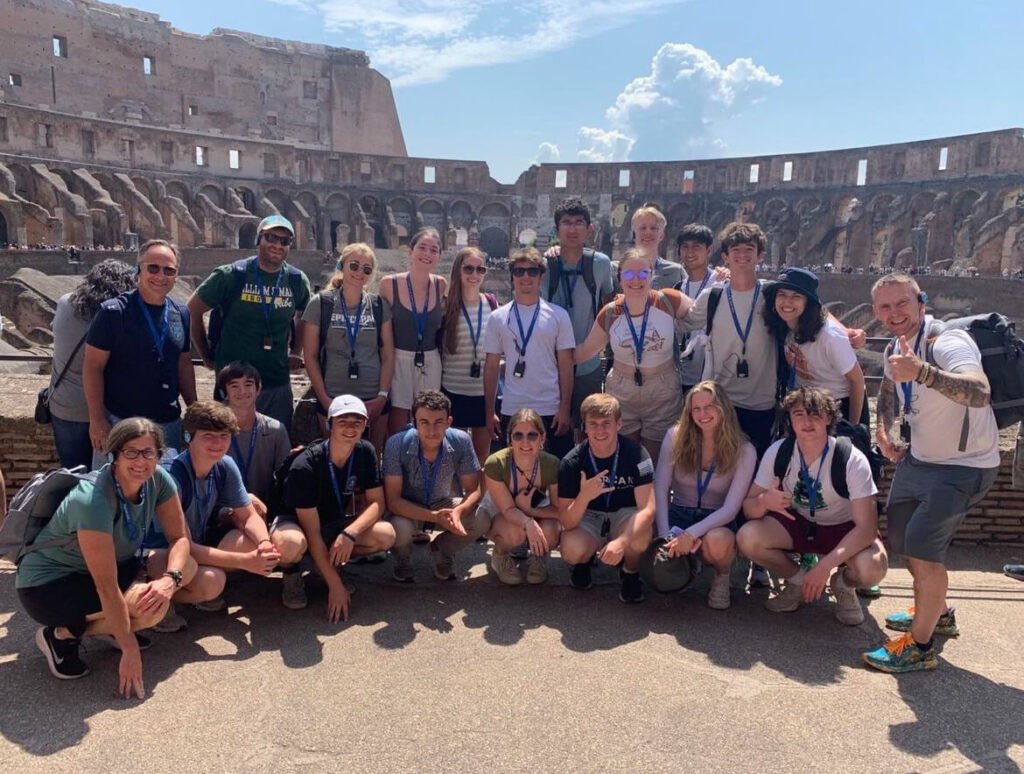Lucas van Binsbergen ’27
Upon the completion of final exams each year, students have the opportunity to explore their interests with a two-week program called May Term, in which they can decide whether they want to stay on campus or possibly learn abroad. May Term began as a way to give students new experiential learning opportunities at the end of the school year. Head of Upper School Michael Letts discusses the evolution of May Term explaining that it started out as J-Term, “Thirteen years ago, students would come back after Christmas break and have a full exam week. So kids were not getting a real break because they were spending their break studying and getting prepared. But, eventually, the decision was made that mid-year exams should be phased out and the potential of providing an experiential opportunity for students at the end of the school year came to light.”
On Thursday, November 16th, students had the opportunity to learn about the various abroad programs offered for this upcoming May Term, as trip details were displayed and showcased in the Dining Hall. To choose among travel options, a form was released to the US Bulletin that allowed students to select any study abroad opportunities they would like to go on. In the last May Term cycle, students had the opportunity to travel to Iceland, Japan, Italy, the Galapagos Islands, Nashville, and Morocco. This year’s options include Spain, Copenhagen, Taiwan, Australia, Senegal, and New Orleans. This year’s Spain trip focuses on geography, history, culture, and speaking Spanish with locals. The Denmark trip is an opportunity to learn more about scientific discoveries as well as history. Taiwan is a cultural immersion of history and heritage. Australia provides opportunities to observe biodiversity including the Great Barrier Reef and the Daintree Rainforest. The Senegal trip allows students to participate in community service while learning about the history of Senegal. New Orleans provides an opportunity for performers to learn more about musical history while singing, dancing, and performing.
Teachers take into account factors like affordability and the variety of educational experiences available when deciding on which May Term abroad trips to offer students.
Ryan Klein, the Form Dean for the Class of ’27 and coordinator of the May Term program says, “The faculty propose locations and there’s a committee that sits down and goes through things such as affordability, what was the last time the faculty got to go on a trip, and then the educational piece.” Klein also adds, “a lot of students do like to take advantage of these trips and obviously they are expensive. So, we do have financial aid available for students who qualify to attend at least one major May Term trip in their four years if they want to.”

Photo courtesy of s.italy_may_term_2023
Students who choose not to travel can participate in May Term courses on campus. Non-travelling May Term options will be released in December before winter break. Klein explains that there are so many different options students who stay on campus can choose from.
He remarks, “There could be a fishing class, an outdoor education class, a knitting class, all different things, that the faculty have the skills that they’re passionate about. One year I taught a podcast course about creating your own podcast and publishing it and how to get it on iTunes and things like that. So it’s an experiential learning for things that you don’t typically get in the classroom.”
Letts also mentions that there will be a new approach to May Term this year. “One new thing we are doing this year is we are starting a sort of a May Term review committee, which looks at what are we doing well and we maybe not doing so well. So there is a group of faculty members and administrators that are going to start looking at those kinds of things.”
Klein concludes that when planning the May Term options, the faculty ask themselves, “What do we think would be most beneficial for our kids to see?’”